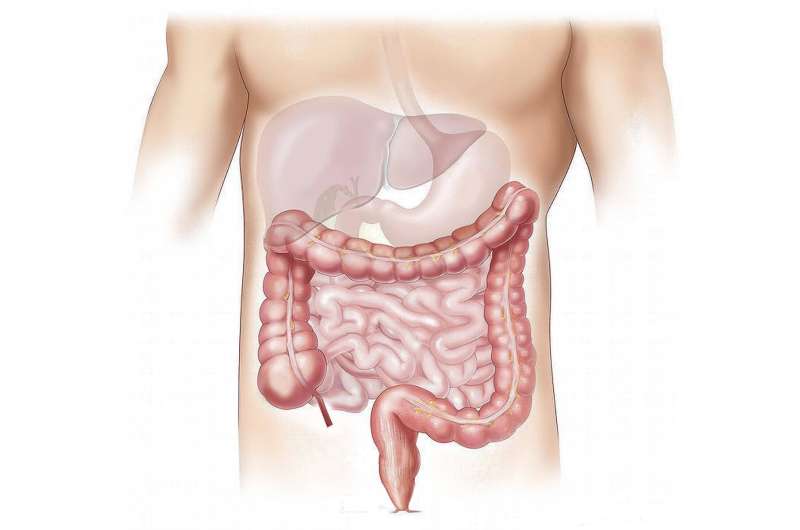This article has been reviewed according to Science X's editorial process and policies. Editors have highlighted the following attributes while ensuring the content's credibility:
fact-checked
peer-reviewed publication
trusted source
proofread
Next-generation stool DNA test found to have best detection rate of noninvasive colorectal cancer screening tools

A study of more than 21,000 average risk patients at 186 sites across the U.S., led by Regenstrief Institute and Indiana University School of Medicine research scientist Thomas Imperiale, M.D., has found that the next-generation multi-target stool DNA colorectal cancer screening test detects 94% of colorectal cancers. This test has the best performance for detection of both colorectal cancer and advanced precancerous polyps of any noninvasive colorectal cancer screening test.
The study results are published in the New England Journal of Medicine.
"We found that the next-generation stool DNA test had a good balance of sensitivity—detecting disease—and specificity—low false positive results. Compared to the fecal immunochemical test (FIT), the next gen test had superior sensitivity for both colorectal cancer and advanced pre-cancerous polys, especially the subgroup of advanced polyps containing high grade dysplasia," said Dr. Imperiale, first author of the study.
"And even though a direct comparison between the current version of the test and this newer version wasn't made, the numerical values for sensitivity were the same or actually a little better for the next gen test and the specificity was about 30% better with this new version of the test, with significantly fewer false positives compared (indirectly) with the current version."
The asymptomatic male and female study participants, aged 40 years or older—were a diverse population generally representative of racial and ethnic demographic characteristics of persons in the United States eligible for colorectal cancer screening.
The next-generation multi-target stool DNA test, which includes new biomarkers, outperformed the more commonly used FIT test in detection of cancers and was more sensitive in picking up advanced precancerous lesions in the colon. However, the FIT test had a lower false positive rate overall. For patients with no polyps of any kind both tests had a false positive rate of 5%.
Both FIT and multi-target stool DNA testing require a single stool sample submitted to a laboratory for analysis. FIT is administered annually, and the stool DNA test typically is used at three-year intervals.
"Primary care providers drive colon cancer screening in this country," said Dr. Imperiale, a health services researcher and gastroenterologist. "While our study establishes superior sensitivity of the next gen DNA stool test to FIT, it does not indicate which screening modality is 'best' for a particular patient. That should be discussed in a conversation between the clinician and the patient that explores various factors including disease risk and likelihood that the patient will complete the chosen test, among other factors.
"The best candidates for this test are average risk persons aged 45 to 60-to-65 years old, who lack conditions that increase the chances of colorectal cancer, including a personal history of inflammatory bowel disease, previous colorectal cancer or pre-cancerous polyps, and a strong family history of colorectal cancer. A strong family history is defined as two first degree relatives (parent, sibling, child) with colorectal cancer or a single first degree relative with colorectal cancer diagnosed before the age of 60."
Colorectal cancer is diagnosed in 153,000 persons annually in the U.S. and is the second most common cause of cancer-related death. The guidelines of the U.S. Preventive Services Task Force and the American Cancer Society recommend colorectal cancer screening for men and women 45 to 75 years of age who are at average risk of the disease. It is estimated that 85% of individuals in this age group are at average risk.
The study authors note that "despite the effectiveness of colorectal cancer screening in reducing the incidence of colorectal cancer and related mortality, screening adherence was just under 60% in 2021."
More information: Next-Generation Multitarget Stool DNA Test for Colorectal Cancer Screening, New England Journal of Medicine (2024).





















